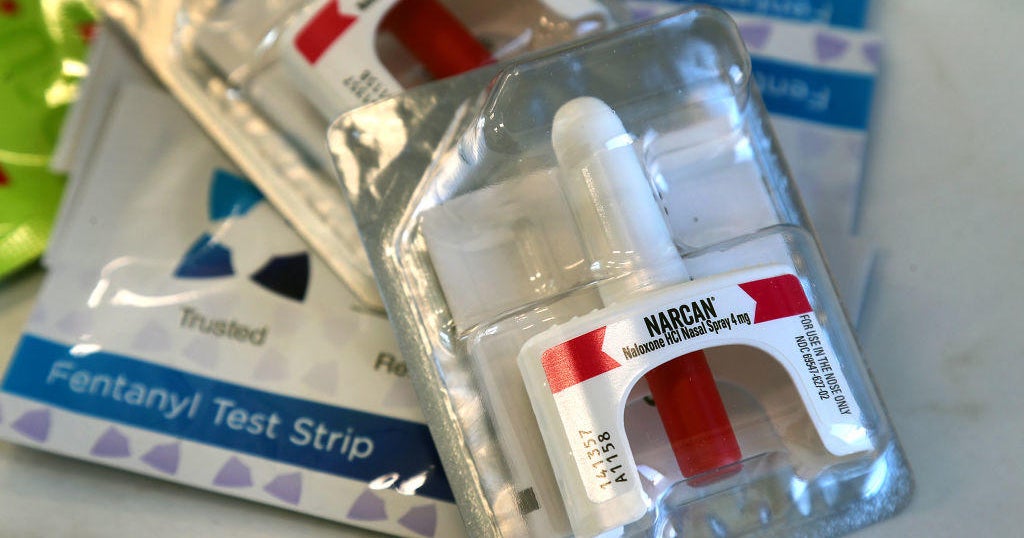Audio: CPR started 11 minutes after staff found Gynnya McMillen
NEW YORK — A sheriff’s deputy planning to transport 16-year-old Gynnya McMillen to court arrived at the Lincoln Village Juvenile Detention Center to pick her up at 9:55 a.m on Jan. 11.
When he arrived, staff at the small facility entered the cell where McMillen spent her one night at Lincoln Village alone. They realized she was “cold” and not breathing, according to emergency dispatch recordings obtained by CBS News.
Nine minutes passed between the deputy’s arrival and the first call to 911, at 10:04 a.m.
About 1 ½ minutes later, the emergency dispatcher asked a Lincoln Village nurse if CPR was being performed.
“No it’s not,” the nurse said.
“They want us to start CPR,” she can then be heard saying to someone at the facility.
“Do y’all have a CPR protocol or do y’all need it?” the dispatcher asked about 10 seconds later.
“I’m new, I can find out, I don’t know,” the nurse replied.
By 10:07, dispatch confirmed that CPR was beginning, and that McMillen was “cold to the touch.” Eight minutes later, an EMS supervisor radioed dispatch and declared McMillen dead. It is not clear if a defibrillator was used at any time. McMillen’s body was on the way to the county coroner by 11:33.
Since McMillen’s death, officials have indicated she likely died in her sleep, though no cause has yet been determined. Members of McMillen’s family have criticized the treatment she received from staff, both before and after her death.
“They have a duty to serve and perform. You start CPR. It doesn’t take 11 minutes to assess whether one is breathing or not,” said Dana McDuffie, whose fiance, Greg Mitchell, is McMillen’s brother.
Officials initially released few details about the circumstances of McMillen’s death, leading her sister to launch a social media campaign seeking answers.
A state official said Friday that on Jan. 10, the day before McMillen’s death, a Lincoln Village employee used an “Aikido restraint” on her. The martial arts technique was used because McMillen refused to remove her sweatshirt in order to be searched and photographed for booking.
“The staff performed an Aikido restraint hold to safely conduct a pat-down search and remove the youth’s hoodie,” wrote Stacy Floden, a spokesperson for the Kentucky Department of Juvenile Justice. “The purpose of having multiple staff involved in a controlled restraint is to ensure the safety of the youth and staff.”
The teen’s “repeated refusal to cooperate with staff and remove her outer garment prompted the restraint,” Floden wrote. A female staff member conducted the pat-down and removed the hoodie, she said.
It’s not clear if the “Aikido restraint” factored into McMillen’s death on Jan. 11. Her death is currently under investigation by the Kentucky State Troopers and the Justice Cabinet’s Internal Investigation’s Branch. McDuffie expressed frustration at the slow trickle of information released by officials since McMillen’s death.
“As you try and grieve in a proper effective manner, you keep thinking, ‘What’s going to come out next? They said one thing before and now it’s something else,’” McDuffie said Saturday.
Her sentiment was echoed by McMillen’s sister, LaChe Simms.
“It’s a lot to take in, it really is. It’s a lot process,” Simms said. “It still doesn’t make sense.”
Michele Deitch, an attorney and juvenile justice expert who lectures at the University of Texas at Austin, said Friday that youths in detention should only be restrained when there’s a risk of physical danger to themselves or others. Deitch criticized the use of martial arts in particular.
“I’ve never heard that phrase used in the context of a corrections setting,” Deitch said.
A chapter Deitch wrote in the National Institute of Corrections’ guide to working with youth in confinement covers “crisis management” for juveniles in detention.
“Situations in which there is not active violence, but a youth simply refuses to comply with an order or is passively resisting do not constitute an immediate necessity of force; policy should clarify this,” Deitch wrote in the the federal agency’s guide. “The continuum of force must offer options for staff--including separation of the youth from peers, verbal de-escalation, or the involvement of mental health staff--that do not involve hands-on measures.”
State police are not currently considering criminal charges in the case.
However, Reginald Windham, a Lincoln Village employee, was placed on paid administrative leave as a result of the internal investigation. Officials say Windham, who has been with the state’s juvenile justice department for 10 years, failed to check on McMillen every 15 minutes, a requirement for those in isolation at the detention center in Elizabethtown.
McMillen was placed in a cell by herself on Jan. 10, at some point after the Aikido incident. Officials previously confirmed to CBS News that McMillen did not respond the next morning when food was offered at 6:30 a.m. and 8:30 a.m., or later when her mother called.
In the nearly 3 ½ hours between when McMillen was first offered food and when the deputy arrived for her at 9:55, she was not checked on.
It is not clear when exactly she died.
Staff said McMillen’s failure to respond the morning of her death didn’t raise red flags, because “her silence was consistent with her behavior” after arriving at the facility, according to Kentucky Justice and Public Safety Cabinet spokesperson Lisa Lamb.
Liz Ryan, a juvenile justice consultant, and founder of the advocacy group Campaign for Youth Justice, said in an interview Wednesday that when McMillen missed breakfast, it should have immediately been a cause for concern.
“It’s common sense. It’s a reasonable expectation. Somebody should have gone in to check to make sure that she’s okay,” Ryan said.
She and Deitch noted that juvenile detention centers are not supposed to be punitive in nature, in part because they’re typically for youth who are pre-trial, and therefore not convicted of any crimes. Both said staff should seek to “engage” teenagers who are not communicative with staff.
McMillen was brought to Lincoln Village on Jan. 10 after she was charged with misdemeanor assault, following what police called a “domestic incident” at her mother’s home in Shelbyville, Ky. Officials say a court-designated worker -- a Kentucky official who handles pre-court processing related to juveniles -- made the recommendation that McMillen be brought to a detention center.
It is not clear why McMillen was alone in a cell or how often she was checked on throughout the night. In Kentucky, youths in isolation must have video surveillance at all times. That footage has been turned over to investigators.
Last week, Kentucky Justice Cabinet Secretary John Tilley requested the investigations be expedited along with McMillen’s autopsy.




